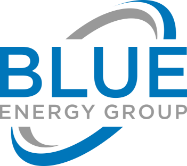Company Update: Blue Energy Group and Walker Reid Strategies will be merging. Communications will represent both companies during the transition. Read the official announcement
UPDATES
The Senate Finance Committee released its draft of The One Big Beautiful Bill on June 16th. The bill differs greatly from the version that passed the House. Key energy-related provisions include:
- Section 30C (Alternative Fuel Vehicle Refueling Property Credit) would also be repealed for projects that begin more than 12 months after enactment.
- Section 179D (Energy-Efficient Commercial Building Deduction) is repealed for projects that begin more than 12 months after enactment.
- Section 45L (Energy-Efficient Home Credit) is repealed for residential construction projects that begin more than 12 months after enactment.
- Section 48 (Investment Tax Credit) for geothermal technology is left untouched from the current law, which remains in place through 2032 and then begins to phase out by 2035.
- Transferability is preserved as it is currently written according to the Inflation Reduction Act (IRA).
- Section 48E (Clean Electricity Investment Credit) for solar and wind technology begins to phase out in 2026. This bill proposes a 60% credit for projects beginning construction in 2026, 20% credit in 2027 and then 0% credit for projects beginning after 2027. Notably, this does not apply to energy storage technologies.
- Elective Pay (Direct Pay) appears to remain intact in the proposed legislation, with no changes made to the ability of tax-exempt entities to receive refundable credits for qualifying clean energy projects.
IMPACT
This legislation—if enacted—would significantly reshape clean energy project economics, incentive eligibility, and investment timelines. Key takeaways:
- Urgency for Construction Start
- Projects relying on 179D or 45L must begin within 12 months of enactment to retain eligibility.
- Developers should prioritize permitting, design finalization, and site mobilization now.
- Transferability Market Unaffected
- Transferability provisions under Section 6418 remain untouched, preserving:
- Tax equity efficiency
- Cash monetization opportunities
- Predictable transactional structures for project sponsors
- Transferability provisions under Section 6418 remain untouched, preserving:
- Credit Structuring Implications
- Projects must optimize placed-in-service timing to retain full 48/48E credit percentages.
- Storage, solar, wind, hydrogen, geothermal, and other techs remain eligible—but with reduced benefit for some past 2028.
- No change to prevailing wage or apprenticeship bonus eligibility (but subject to phase-out).
- Watch for Foreign Content Rules
- Developers using Chinese (or other flagged) content should begin sourcing risk reviews for:
- Inverters, batteries, modules, trackers, etc.
- Risk of disqualification or future IRS enforcement via Section 48E(d)
- Developers using Chinese (or other flagged) content should begin sourcing risk reviews for:
- EV Infrastructure, Commercial Construction & Residential Developers Hit Hard
- Homebuilders and EV infrastructure investors lose core credits (45L and 30C), disrupting:
- Energy code-driven incentives
- Local/state EV infrastructure co-financing plans
- Commercial developers, designers and ESCOs lose 179D deduction
- Homebuilders and EV infrastructure investors lose core credits (45L and 30C), disrupting:
GUIDANCE
(Provided by David Diaz, Managing Partner at Walker Reid, and Josh Howes, CEO of Blue Energy Group)
Clients and partners should stay alert as the Senate begins negotiating this bill. Although the bill has yet to pass the Senate and is significantly different from the House bill, many of the clean energy incentives are clearly at risk.
If your team is planning projects that depend on the 179D deduction, 45L credit, the ITC, or any of the affected provisions, we strongly recommend evaluating construction start timing, eligibility documentation, and financing strategies now.
There is still time to contact your congressional representatives and Senators to make your voice heard. Whether you support preserving 179D deductions, maintaining long-term certainty, or expanding access to other energy tax incentives, direct input from constituents can still shape the outcome of this bill.
Walker Reid and Blue Energy will continue to advocate for clear, stable, and actionable guidance in the energy tax space. We are closely engaged with stakeholders and will provide real-time updates as this legislation progresses.
We will continue monitoring the situation closely and keep you updated as it develops. If you need help understanding how this may impact your projects, contact us to discuss.
